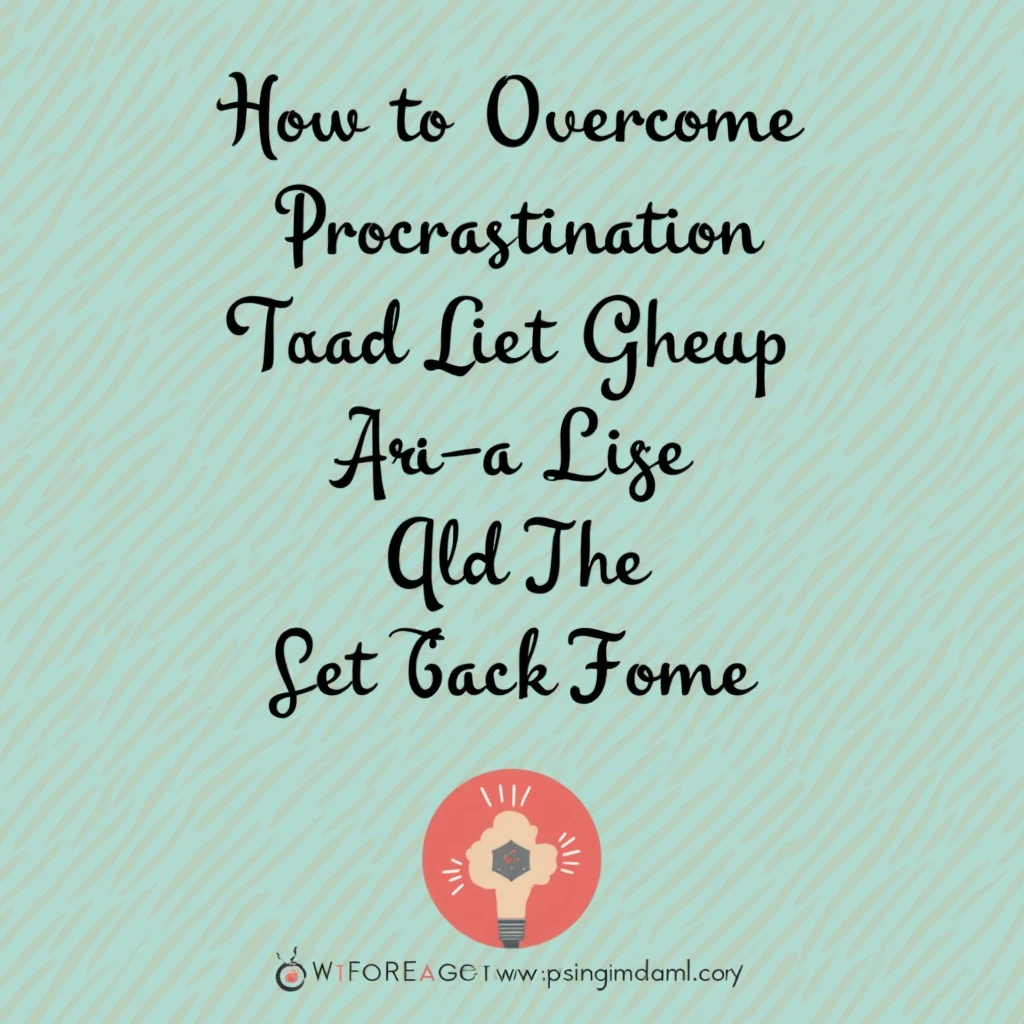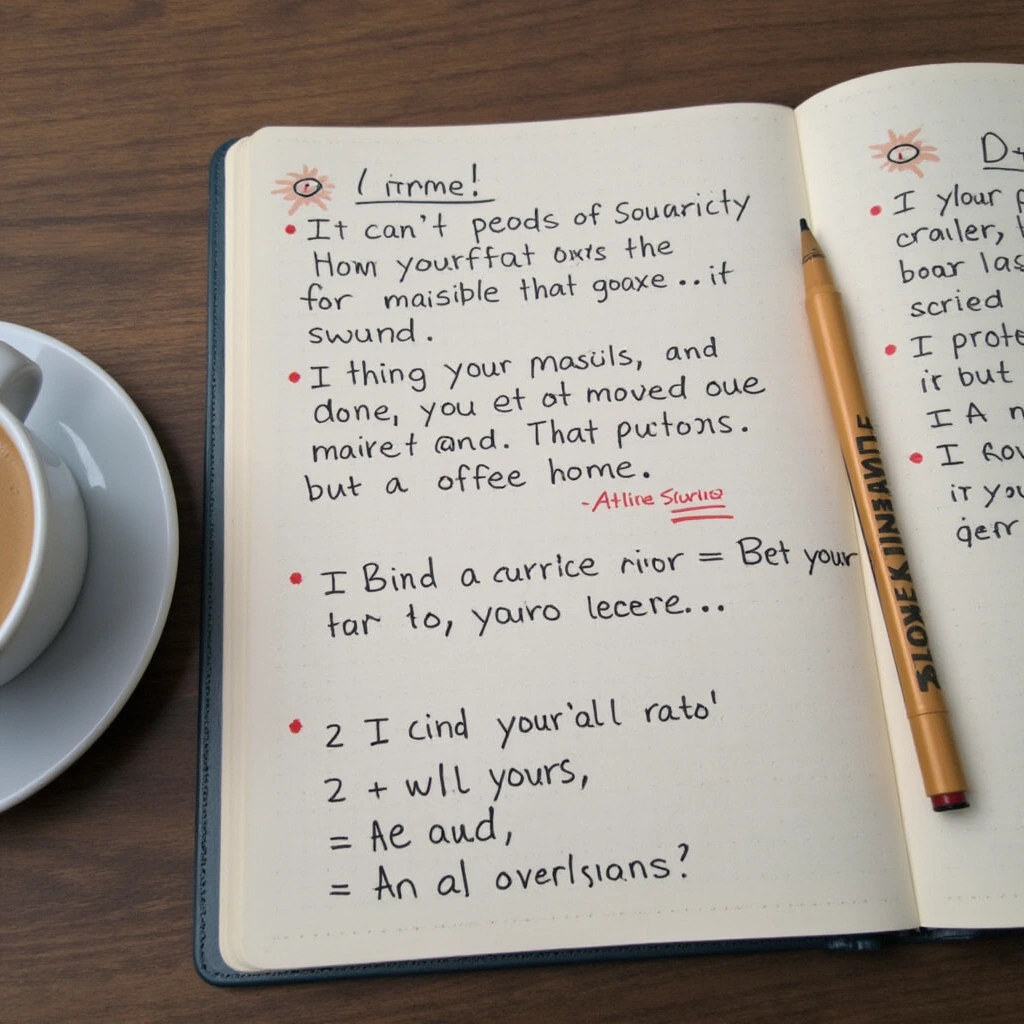How to Overcome Procrastination and Get Things Done
We’ve all been there — staring at a to-do list that never seems to end, knowing what needs to be done, but still finding ourselves scrolling on our phones or watching “just one more video.” Procrastination can make even the simplest tasks feel impossible. But here’s the good news: procrastination is not a permanent trait. It’s a habit that can be unlearned with the right mindset and practical strategies.
In this article, you’ll discover how to understand why you procrastinate, and how to build habits that help you stay focused, motivated, and productive every day.
![]()
1. Understand Why You Procrastinate
Before you can fix procrastination, you need to understand why it happens. It’s not about laziness — it’s about avoiding discomfort. When a task feels too big, boring, or stressful, your brain seeks short-term pleasure instead, like checking social media or doing something “easier.”
Psychologists call this “task avoidance.” Your brain chooses comfort now and promises to work later, but later often never comes. Once you recognize that procrastination is a coping mechanism, you can start managing it intentionally instead of judging yourself for it.
2. Break Tasks into Tiny, Manageable Steps
The bigger the task, the harder it is to start. Your brain sees large projects as overwhelming, which triggers avoidance. The solution? Break everything down into small, easy steps.
For example, instead of telling yourself “I need to write a report,” start with “I’ll open the document and write the first sentence.” Once you take that tiny step, momentum builds naturally. This is known as the “small wins strategy” — and it’s one of the most powerful ways to outsmart procrastination.
Completing small parts gives your brain a quick dopamine boost, making it easier to continue. Progress itself becomes motivating.

3. Use the 5-Minute Rule
If starting is the hardest part, try the “5-Minute Rule.” Tell yourself you’ll only work on a task for five minutes. After five minutes, you’re free to stop. Most of the time, once you begin, you’ll continue longer because the hardest part — starting — is already done.
This rule works because it removes the pressure of perfection. Instead of worrying about finishing, you focus only on beginning. Even five minutes of action beats zero minutes of overthinking.
4. Eliminate Distractions from Your Environment
Even the most disciplined people can’t resist constant distractions. Notifications, noise, or messy surroundings make procrastination almost inevitable. To get things done, you need an environment that encourages focus.
- Turn off unnecessary notifications on your phone or computer.
- Use website blockers like Freedom or StayFocusd during work hours.
- Keep your workspace clean and organized.
- Use background music or white noise to maintain concentration.
Remember: you don’t rise to the level of your motivation — you fall to the level of your environment. Build one that supports your goals.

5. Overcome Perfectionism
Many people procrastinate because they’re afraid of not doing something perfectly. They spend too much time planning, researching, or waiting for the “right moment.” Perfectionism is just procrastination in disguise. The truth is, done is better than perfect.
Try to focus on progress over perfection. Aim for version 1.0 now — you can always improve it later. When you shift from “I must do it perfectly” to “I’ll just get started,” you release mental pressure and move forward faster.
6. Set Clear Priorities and Deadlines
Procrastination often happens when everything feels equally important. Without clear priorities, your brain gets overwhelmed and avoids decisions altogether. Each morning (or the night before), list your top three most important tasks and focus only on completing them.
Also, set realistic deadlines — not “someday” goals. When your tasks have a time frame, your brain treats them as urgent and is more likely to act. Tools like the Eisenhower Matrix or the Pomodoro Technique can help you manage time effectively.
7. Manage Your Energy, Not Just Your Time
Sometimes procrastination happens not because of poor time management, but because of poor energy management. Pay attention to when you’re most alert during the day — for some, it’s morning; for others, it’s late at night. Schedule your most important tasks during your peak energy periods.
Take short breaks every 60–90 minutes to recharge. Use techniques like the Pomodoro method (25 minutes work + 5 minutes rest). A tired brain will always choose procrastination; a rested brain will choose productivity.
8. Reward Yourself for Taking Action
Behavioral psychology shows that rewards reinforce behavior. When you reward yourself for finishing tasks, you teach your brain that action feels good. It could be something small like a snack, a short walk, or watching your favorite video after completing a task.
Just make sure your rewards don’t become distractions. The goal is to create a positive feedback loop that motivates you to act again tomorrow.
9. Replace Negative Self-Talk with Action-Oriented Thinking
One of the biggest barriers to productivity is your internal dialogue. Thoughts like “I’ll never finish this” or “I’m too lazy” drain your motivation. Replace them with empowering, action-based thoughts: “I’ll start small,” “I’ll give it 10 minutes,” or “I’ll just write one paragraph.”
Your brain listens to the language you use. When you speak with confidence and take small actions, procrastination loses its power.
10. Build a System of Accountability
Sometimes, we procrastinate because no one else knows or cares if we don’t do something. Accountability changes that. Share your goals with a friend, join a productivity group, or use an app that tracks progress publicly. When someone else expects results, your brain takes deadlines more seriously.
Even a simple “check-in” system — where you message a friend daily to report what you did — can increase your consistency dramatically.

11. Understand That Motivation Comes After Action
Most people wait to “feel motivated” before starting. But science shows it works the other way around — action creates motivation. Once you take the first small step, your brain releases dopamine, making you want to continue. So stop waiting for motivation; start, and motivation will follow.
12. Reflect, Adjust, and Keep Improving
At the end of each week, reflect on what worked and what didn’t. Did you procrastinate more on certain tasks? Why? Adjust your routine, simplify your goals, and keep improving your strategy. Procrastination doesn’t disappear overnight, but with awareness and consistent effort, it loses control over you.
Final Thoughts: Progress, Not Perfection
Beating procrastination isn’t about becoming superhuman — it’s about understanding your mind and building better habits. You don’t need to eliminate procrastination completely; you just need to manage it better than yesterday.
Take one step today. Write one line, make one call, start one workout — whatever it is, start small but start now. Each small action compounds into massive progress over time.
The secret to productivity is simple: take imperfect action, consistently. Because momentum, once built, is unstoppable.
Written by Daily Growth Journal | Published on October 8, 2025